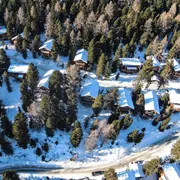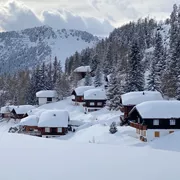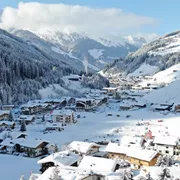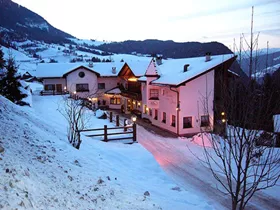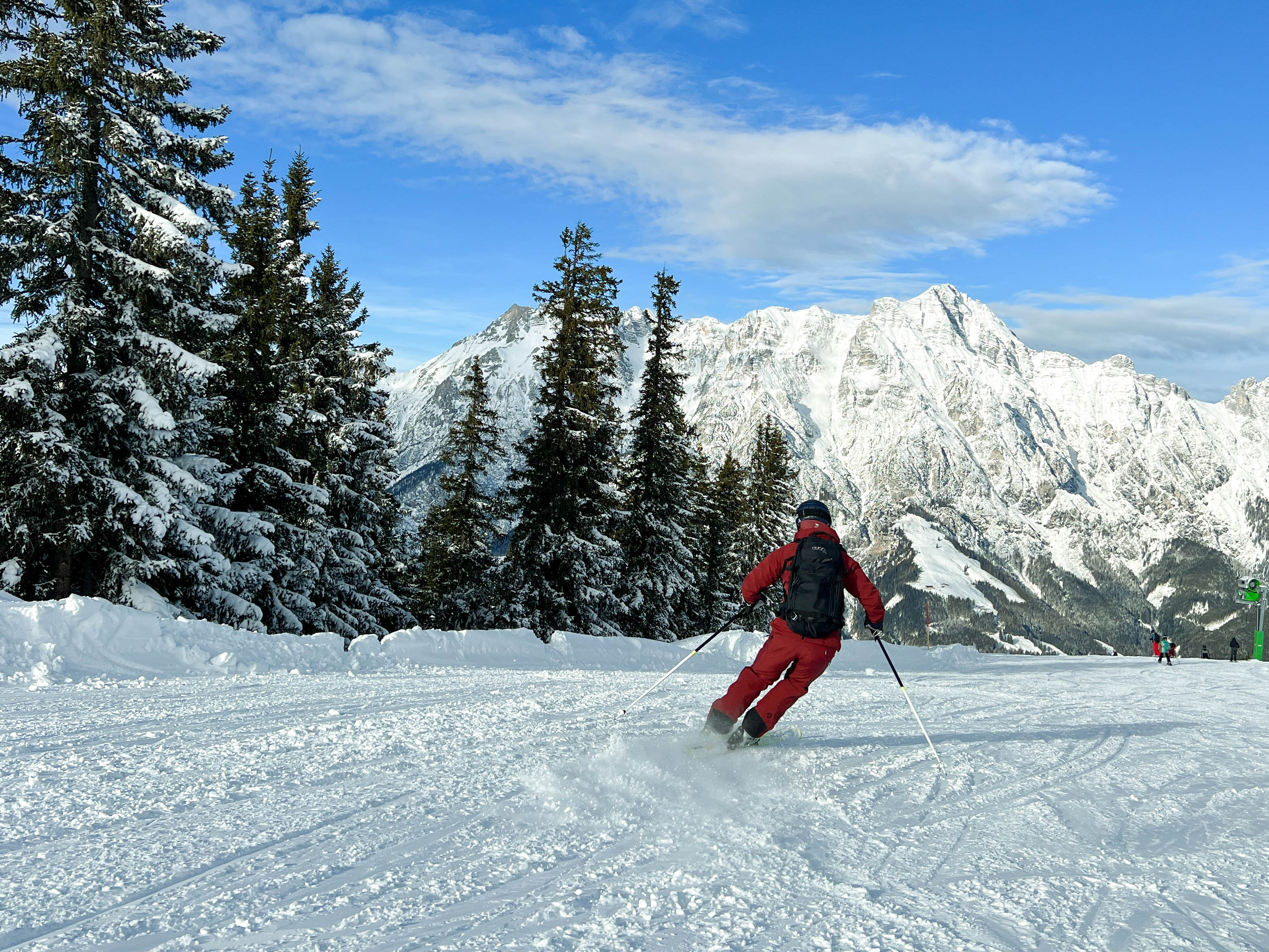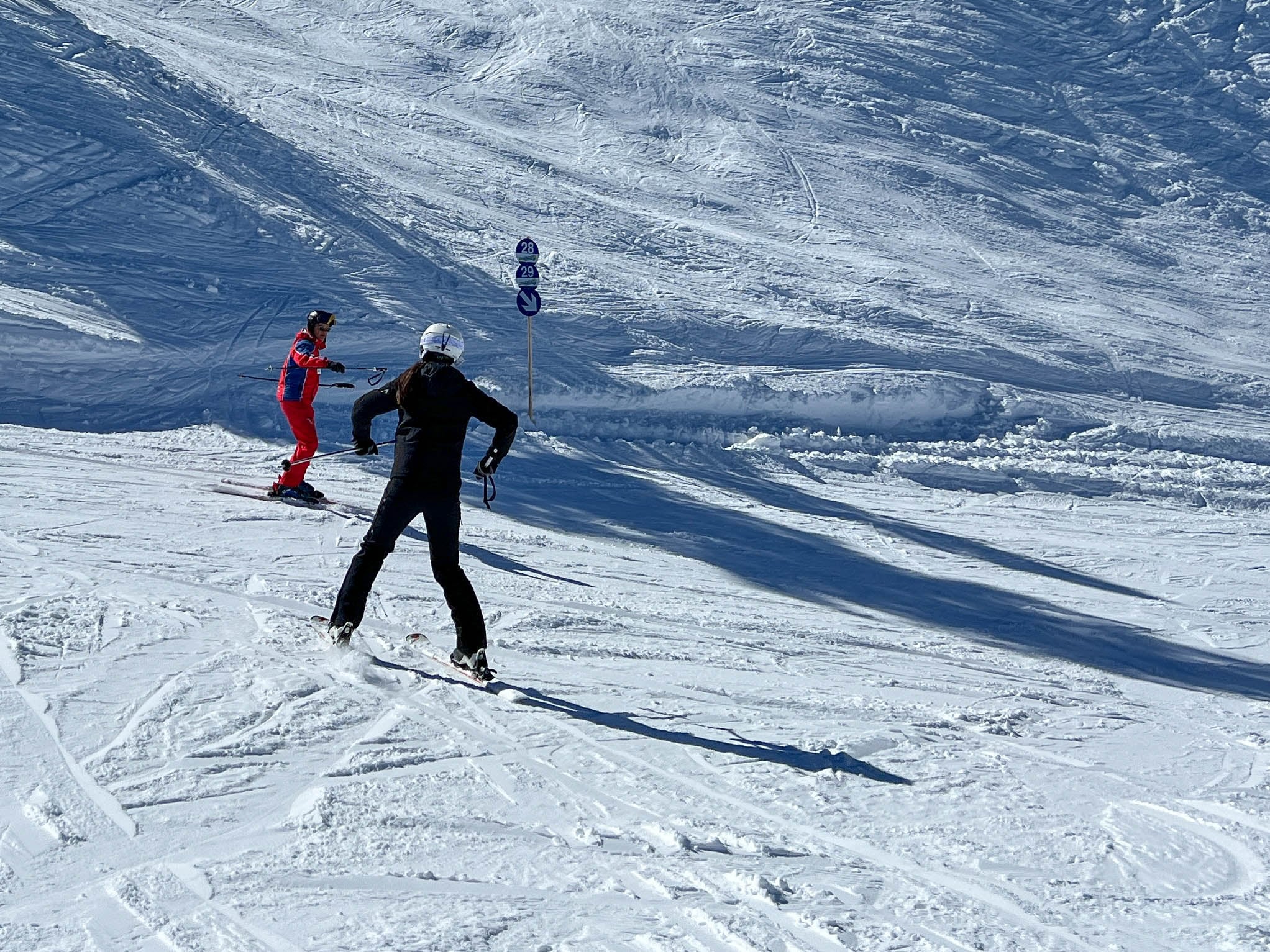

The usual ski holiday consists of nothing but good times. After all, what could go wrong? You're partaking in your favourite sport and you've been looking forward to this all year! But sometimes you'll have the bad luck to run across a nasty accident, or even be involved in one. When this happens, it's important to be prepared. Do you know how to act when an accident occurs on the slopes? Here we'll answer some common questions about accidents and first aid on the piste.
#1. What should I do if I'm involved in a skiing accident?
The first thing to do if you've been in a skiing or snowboarding accident is stay put. Asses how you feel and whether you have pain anywhere. If appropriate, try to gently move your arms and legs, unless you think you might have a broken bone or a spine or neck injury. If you're not sure about your condition or if you think you need extra help, ask a passerby.

#2. What should I do if I cause or witness a skiing accident?
If you're the cause of a skiing accident or even if you witness one, you must stay put. To keep skiing is a criminal offense in many places. Mark the scene of the accident by placing your skis and poles uphill of the victim in an "X" shape. This warns other skiers and snowboarders to steer clear so that no other crashes occur. Then seek help from other skiers.
#3. Should I call ski patrol or perform first aid myself?
Once you've marked the scene of the accident, you should assess the victim and provide the necessary first aid. Get an idea of the injuries and the condition of the victim, place the victim in a comfortable position (carefully, so as not to exacerbate the injuries) and protect them from hypothermia. Then call mountain rescue for additional help. If a victim is not breathing, then skip straight to #10 on this list. Hopefully other skiers and snowboarders will have stopped to help, so you can divide these tasks.
#4. What number should I phone for mountain rescue?
Each country in the Alps has a different telephone number for mountain rescue. You can dial 112 in all of Europe for emergency services, but here are the mountain-specific emergency numbers that will get you more directly to the appropriate medical services:
- Austria 140
- France 15
- Italy 118
- Switzerland 1414
- Germany 112

#5. What information should I provide on the phone?
Try to stay calm while calling and concentrate on sharing the information you have. The emergency dispatcher will ask you all the necessary questions. Any details you have about the accident can be useful. Consider telling them:
- Where the skiing accident occured (piste, village, weather conditions, is there a place nearby where a helicopter can land)
- What exactly happened
- How many injured people there are
- Which injuries you have observed
- Your own name and a contact telephone number
#6. How do I describe my location?
It's important to always know which piste you're skiing on and what the last lift you took was, so that you can share this information with the emergency dispatcher if an accident should occur. This helps them get to the scene of the accident more quickly. If you don't know where you are, look around you for piste signs, landmarks, a mountain restaurant or anything else that might help people find you. Stay on the phone with the mountain rescue team so you can help direct them to the scene of the skiing accident.
#7. What should I do if my phone is out of credit or I have no signal?
The European emergency phone number, 112, is always free to call no matter your provider. If you can't get a signal on your phone, try switching location slightly (without leaving the victim alone) and consider restarting your phone. Instead of entering your PIN number on restart, just dial 112 immediately. If you're successful, emergency services will decide how to proceed. In most cases ski patrol is notified and will take care of things from there.
#8. Can I help a victim leave the piste?
After marking the accident and calling emergency services, keep taking care of the victim(s). Talk to each victim and check their breathing and pulse. If they are conscious and respond to contact, you can start working together to rule out major injuries. If the victims are able to move by themselves, help them to the edge of the piste. Talk in calm, soothing tones and keep them warm.

#9. Can I just take care of the victim myself?
No! This is a no-brainer for most skiers and snwoboarders. Treating an injury without the proper knowledge and/or an x-ray can have major consequences for the victim. These procedures are better left to a doctor in the hospital or the ski patrol.
#10. What should I do if the victim is not breathing?
If the victim is unconscious but breathing, keep them in a stable position and protect them against the cold. Don't move them! Contact emergency services.
If the victim is not breathing, notify mountain rescue and immediately start CPR. Keep calm and have confidence in your own abilities. How to perform CPR >
#11. What should I do if I'm off-piste and have no mobile phone?
We'd like to remind our readers never to venture off-piste alone, especially if you're not properly equipped. But if against all odds you do find yourself in this situation, use the Alpine Distress Signal. This entails giving six signals, once every ten seconds for a total duration of a minute, followed by a minute pause before repeating. Signals can be, for example, shouting, whistling, flashing a light or mirror. Keep repeating intervals of one minute of signals and one minute of silence until you receive a response. Rescuers should know to respond by giving signals three times in one minute.
#12. Who pays the cost in the event of a skiing accident?
This depends on the injuries and where the accident happened. If you were skiing abroad, you should contact your insurance provider to see their policy. Travellers with winter sports coverage are usually insured for admission to a local hospital.
Avoid ski accidents by skiing smart
In the vast majority of cases, skiing accidents can be avoided by skiing responsibly. Accidents often happen because a skier or snowboarder overestimated their own ability level, or were skiing too fast and out of control. Maintain a safe distance from other skiers at all times, learn and follow the Alpine Responsibility Code, choose slopes appropriate to your ability level, and do your best not to endanger yourself or other people on the slopes.

